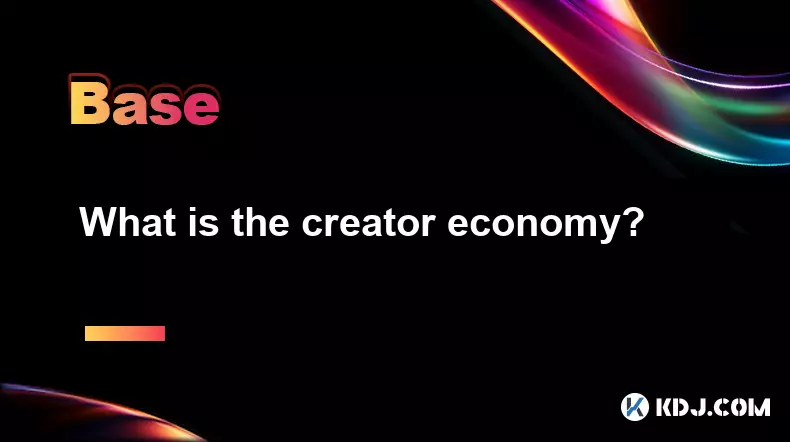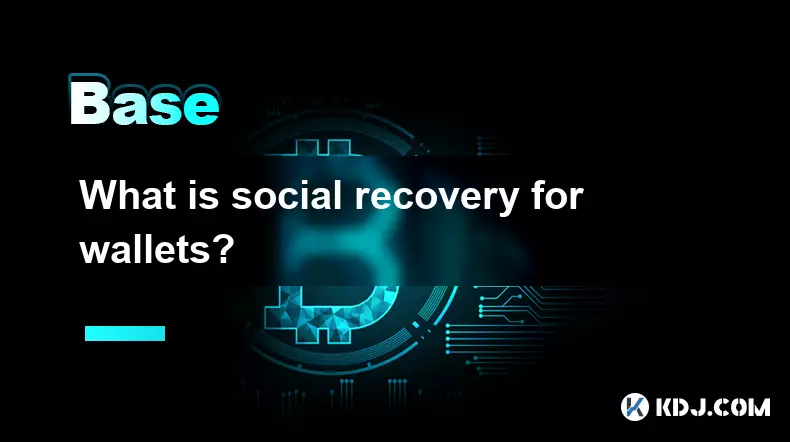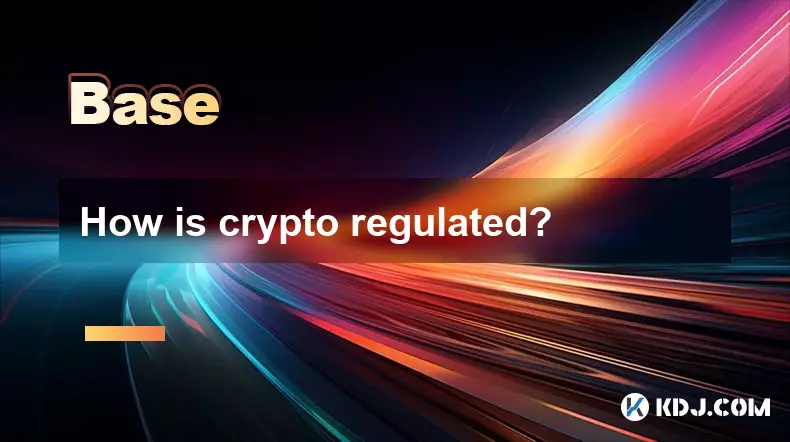-
 bitcoin
bitcoin $115139.818732 USD
-0.61% -
 ethereum
ethereum $4598.676579 USD
-1.26% -
 xrp
xrp $3.029978 USD
-2.08% -
 tether
tether $1.000434 USD
0.01% -
 solana
solana $240.784980 USD
-1.13% -
 bnb
bnb $925.044734 USD
-0.61% -
 usd-coin
usd-coin $0.999772 USD
0.01% -
 dogecoin
dogecoin $0.277157 USD
-2.21% -
 tron
tron $0.348716 USD
-0.26% -
 cardano
cardano $0.885611 USD
-3.31% -
 hyperliquid
hyperliquid $53.547629 USD
-2.46% -
 chainlink
chainlink $24.053828 USD
-2.67% -
 ethena-usde
ethena-usde $1.001251 USD
0.02% -
 sui
sui $3.671154 USD
-2.26% -
 avalanche
avalanche $29.401465 USD
-1.56%
What is the difference between a Wallet Address and a Contract Address?
A wallet address, controlled by a private key, allows users to send and receive crypto, while a contract address, governed by code, executes predefined functions when interacted with on the blockchain.
Sep 12, 2025 at 09:19 pm

Understanding Wallet Addresses in the Cryptocurrency Ecosystem
1. A wallet address is a unique identifier generated from a user's public key through cryptographic hashing algorithms. It serves as a destination for receiving digital assets such as Bitcoin, Ethereum, or other tokens. Each wallet address is tied directly to a private key, which grants the owner exclusive control over the funds stored at that address.
2. Wallet addresses are typically associated with individual users or entities managing their own funds. They can initiate transactions, sign messages, and interact with decentralized applications. Most wallet addresses begin with prefixes like '0x' on Ethereum or 'bc1' on Bitcoin, depending on the network and format.
3. These addresses are designed for simplicity and security, allowing users to share them publicly without compromising their private keys. However, once a transaction is sent to a wallet address, reversing it is impossible, emphasizing the importance of accuracy during transfers.
4. Wallet addresses support both inbound and outbound transactions. When a user sends cryptocurrency, they use their private key to authorize the transfer from their wallet address to another address—whether it belongs to another wallet or a contract.
5. Most cryptocurrency wallets, such as MetaMask or Ledger, generate and manage wallet addresses automatically, abstracting the complexity of public-key cryptography from the average user.
The Role and Function of Contract Addresses
1. A contract address is a special type of address created when a smart contract is deployed on a blockchain network, particularly on platforms like Ethereum. Unlike wallet addresses, contract addresses are not derived from a private key but are calculated based on the deploying wallet’s address and the number of transactions (nonce) it has sent.
2. Once deployed, a contract address acts as a permanent endpoint for interacting with the logic embedded in the smart contract. It can receive and hold funds, execute code, and trigger functions based on predefined conditions. Users and other contracts can call these functions by sending transactions to the contract address.
3. Contract addresses cannot initiate transactions on their own. They only respond to incoming transactions or function calls. This means they are passive entities that operate strictly according to their programmed rules.
4. Many decentralized finance (DeFi) protocols, NFT marketplaces, and token systems operate through contract addresses. For example, when a user swaps tokens on Uniswap, they are interacting with a contract address that manages liquidity pools and executes trades.
5. The transparency of blockchain allows anyone to inspect the code behind a contract address, provided it has been verified on platforms like Etherscan. This enables trustless verification of a contract’s behavior before interaction.
Key Differences Between Wallet and Contract Addresses
1. Wallet addresses are controlled by private keys, while contract addresses are governed by code. This fundamental distinction determines how each address behaves and who or what can trigger actions from it.
2. Only wallet addresses can independently initiate transactions. Contract addresses must wait for external input—usually from a wallet—to execute any function or transfer funds.
3. Wallet addresses are created when a user sets up a wallet, whereas contract addresses come into existence only after a deployment transaction is confirmed on the blockchain.
4. Contract addresses often host complex logic, such as token issuance, staking mechanisms, or automated market making. Wallet addresses do not contain executable code and serve purely as storage and transaction endpoints.
5. While both types of addresses can hold tokens and ETH, the way they handle these assets differs significantly. A contract address may enforce rules on how funds are withdrawn, while a wallet address allows the owner full discretion over spending.
Frequently Asked Questions
Can a contract address own tokens?
Yes, a contract address can hold tokens just like a wallet address. Many DeFi contracts, such as yield farms or NFT marketplaces, store user deposits or manage token balances within their contract address.
Is it safe to send funds to a contract address?
Sending funds to a contract address is safe only if the contract is well-audited and trusted. Malicious contracts may trap or steal funds, especially if they contain hidden functions. Always verify the contract’s source code and community reputation before interacting.
How can I tell if an address is a wallet or a contract?
On block explorers like Etherscan, you can check the address details. If the address has associated contract code, it is a contract address. If it shows only transaction history without code, it is likely a wallet address.
Can a contract address receive ETH or only tokens?
A contract address can receive both ETH and tokens. It processes ETH transfers through payable functions and handles tokens via standard interfaces like ERC-20 or ERC-721, depending on the contract’s design.
Disclaimer:info@kdj.com
The information provided is not trading advice. kdj.com does not assume any responsibility for any investments made based on the information provided in this article. Cryptocurrencies are highly volatile and it is highly recommended that you invest with caution after thorough research!
If you believe that the content used on this website infringes your copyright, please contact us immediately (info@kdj.com) and we will delete it promptly.
- Kera Capital, Coinbase, and Stock Positions: What's the Deal?
- 2025-09-15 18:25:15
- Upbit Listing Sparks Altcoin Buzz: Bitcoin, Worldcoin, and the Crypto Landscape
- 2025-09-15 18:25:15
- London Stock Exchange Enters the Blockchain Arena: A New Era for Private Funds
- 2025-09-15 18:30:01
- XRP, Staking, and Tundra: A New Era for XRP Holders
- 2025-09-15 18:30:01
- USA Investors Digging Gold: Cloud Mining for Monthly Profits in 2025
- 2025-09-15 18:45:14
- Bitcoin Whale Activity, Crypto Presales, and the Next Big Thing
- 2025-09-15 18:45:14
Related knowledge

What is the creator economy?
Sep 10,2025 at 02:54am
Understanding the Creator Economy in the Digital Age1. The creator economy refers to a digital ecosystem where individuals produce content, build audi...

What is social recovery for wallets?
Sep 09,2025 at 09:54am
Understanding Social Recovery in Cryptocurrency Wallets1. Social recovery is a security mechanism designed to help users regain access to their crypto...

What is a crypto payment gateway?
Sep 14,2025 at 06:36pm
Understanding the Role of a Crypto Payment Gateway1. A crypto payment gateway is a technological solution that enables merchants to accept digital cur...

What is DeFiLlama?
Sep 10,2025 at 09:18am
What Is DeFiLlama and Why It Matters in the Crypto Space1. DeFiLlama is a data analytics platform that focuses on decentralized finance (DeFi) protoco...

What is CoinGecko?
Sep 11,2025 at 06:18am
What is CoinGecko?CoinGecko is a cryptocurrency data aggregator that provides real-time information on digital asset prices, trading volumes, market c...

How is crypto regulated?
Sep 10,2025 at 04:18pm
Understanding the Framework of Crypto Regulation1. Governments and financial authorities around the world have taken varied approaches to regulating c...

What is the creator economy?
Sep 10,2025 at 02:54am
Understanding the Creator Economy in the Digital Age1. The creator economy refers to a digital ecosystem where individuals produce content, build audi...

What is social recovery for wallets?
Sep 09,2025 at 09:54am
Understanding Social Recovery in Cryptocurrency Wallets1. Social recovery is a security mechanism designed to help users regain access to their crypto...

What is a crypto payment gateway?
Sep 14,2025 at 06:36pm
Understanding the Role of a Crypto Payment Gateway1. A crypto payment gateway is a technological solution that enables merchants to accept digital cur...

What is DeFiLlama?
Sep 10,2025 at 09:18am
What Is DeFiLlama and Why It Matters in the Crypto Space1. DeFiLlama is a data analytics platform that focuses on decentralized finance (DeFi) protoco...

What is CoinGecko?
Sep 11,2025 at 06:18am
What is CoinGecko?CoinGecko is a cryptocurrency data aggregator that provides real-time information on digital asset prices, trading volumes, market c...

How is crypto regulated?
Sep 10,2025 at 04:18pm
Understanding the Framework of Crypto Regulation1. Governments and financial authorities around the world have taken varied approaches to regulating c...
See all articles





















![Trump WLFI token private key collision project, can use multiple windows and claim to be a single window income of four digits [Protocol script + usage tutorial] #Make money at home#Make money at side business Trump WLFI token private key collision project, can use multiple windows and claim to be a single window income of four digits [Protocol script + usage tutorial] #Make money at home#Make money at side business](/uploads/2025/09/15/cryptocurrencies-news/videos/trump-wlfi-token-private-key-collision-project-multiple-windows-claim-single-window-income-digits-protocol-script-usage-tutorial-money-money-business/68c76555f1557_image_500_375.webp)




















































